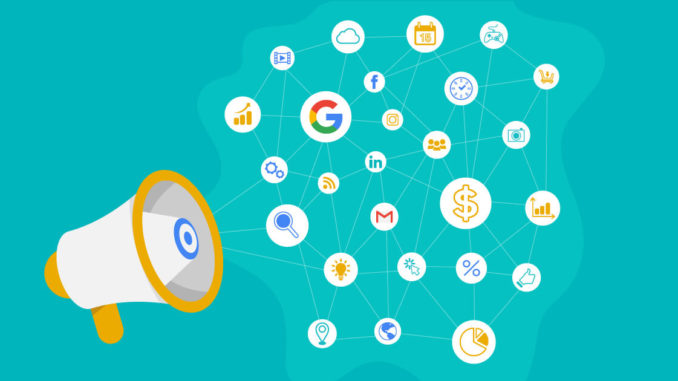
Hello and welcome to another edition of – our weekly column where we comb through some of the most relevant news and events that took place within the digital marketing world over the last 7 days or so.
Let’s see what “April 2020: Week 5” edition brings:
…and more.
Alrighty then, let’s dive right in!
Google Ads to Require Identity Verification
Google recently announced that of a user’s identity and geographic location.
The new requirement comes as an addition to their 2018 policy update that introduced identification verification for politically-focused ads.
The upcoming advertising requirements, that will first be rolled out in the US then applied to the rest of the world, will include the following verification aspects:
(Source: Google)
According to Google, the new program will be applied to Search, Display, and YouTube, and is made in an attempt to give their users “transparency, choice, and control when it comes to the ads they see on our platforms.”
More information available in
Selling Products in Google Search Results Will Soon Be Free
E-commerce merchants via the Google Shopping tab. This is likely to prompt site owners and SEOs, especially those focusing mostly on organic search, to add the Google Shopping tab to their SEO arsenal.
Like it is the case with the previous Google Ads update, this feature will first be rolled out in the US search results, while the global deployment should happen by the end of 2020.
Here’s what the team over at about the potential benefits of the new update:
“For retailers, this change means free exposure to millions of people who come to Google every day for their shopping needs. For shoppers, it means more products from more stores, discoverable through the Google Shopping tab. For advertisers, this means paid campaigns can now be augmented with free listings.”
(Source: Google)
The motive behind this decision is the fact that most struggling businesses are not able to pay for Google Shopping listings during this time.
Google Reveals (Kind of) How Long it Takes to Rank a New URL After 301 Redirect
The recent episode of Ask Google Webmasters video series brought up an interesting question regarding the time needed for Google to rank a new URL after the old one was marked as 301 redirect.
Google’s own John Mueller answered the following question sent in by a site owner:
“After a 301 redirect, how long does it take Google to start ranking the NEW URL instead of the old one? I did a redirect from A to B with 301, then Google indexed BOTH but instead of ranking the new one, Google is still ranking the old URL.”
Mueller’s composite answer emphasized that Google looks at multiple aspects that factor into the process of identifying a canonical URL, not just redirects.
“At a general level, a 301 redirect is just a signal for canonicalization. You’re telling us you’d prefer to have the destination page indexed rather than the originating one. And that’s fine.
However, we use lots of factors for canonicalization, not just redirects…
In practice, what happens here is we spot the redirect, but we also look at the other factors.”
These other factors include:
According to Mueller, Google treats the destination URL as canonical only in cases where all these factors align.
Watch the entire episode below:
Read more about this event in .
Google Updated Reports in Google Search Console
Google recently published a note titled “” revealing that multiple reports within Google Search Console have been updated. In an attempt to provide a quicker and more responsive GSC experience, Google decided to “cover a smaller number of pages.”
The GSC reports that have been altered include:
What this means is that Google is now (as of April 12, 2020) looking at a smaller number of your pages for generating the above-mentioned reports. This may result in you experiencing a decrease in the number of items and pages tracked within Google Search Console, but the team behind these changes says that it will “not affect Search results, only the data reporting in Search Console.”
New Facebook Study Tackles the Impact of Social Comparison on Mental Health
Facebook recently published a study in which they analyzed the psychological impact social media can have on mental health.
The trio of Facebook researchers comprised of Moira Burke, Justin Cheng, and Bethany de Gant conducted research involving 37,000 people from 18 countries where they examined whether or not social media activity makes social comparison worse.
According to Facebook, this may be the “largest survey on social comparison ever done” and it seeks to answer the following questions:
They came to the conclusion that social media experiences that can contribute to the negative effects of social comparison include:
You can find more info on their findings and .
LinkedIn to Introduce Polls
After including Stories in their content format arsenal, LinkedIn is yet again following suit of other social media platforms .
The information that LinkedIn is working on this new feature was leaked by Jane Manchun Wong, an expert at finding unreleased features by reverse engineering apps.
LinkedIn users will soon be able to add polls to any type of posts, while the feature is expected to be very similar to Twitter polls. LinkedIn users will be able to create polls featuring one question and up to 4 responses.
That would be all for this installment of Digital Marketing Week in Review by Four Dots. See you next week, until then – feel free to !
Stay home and stay safe.
